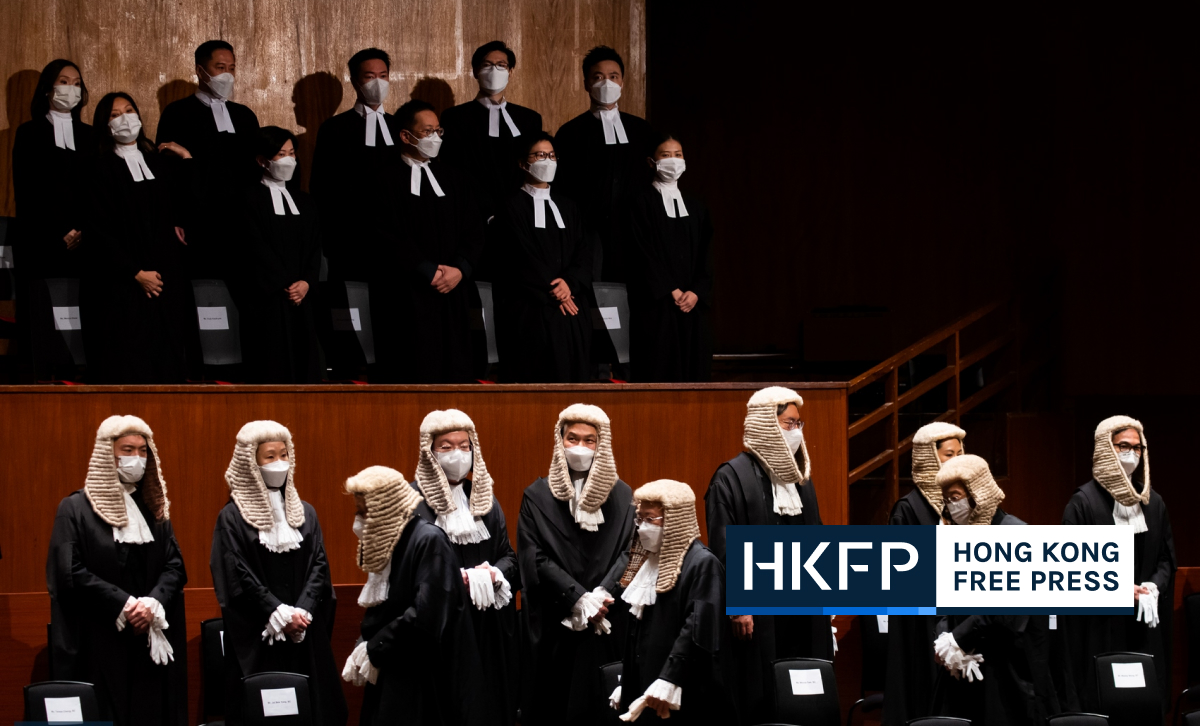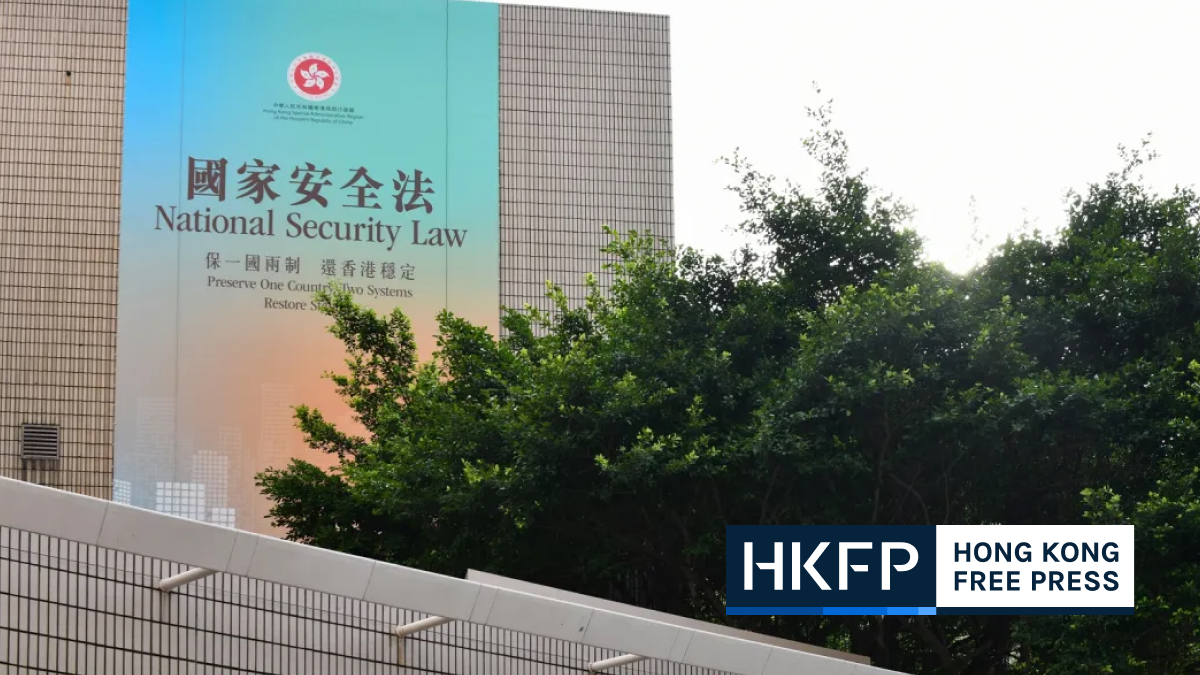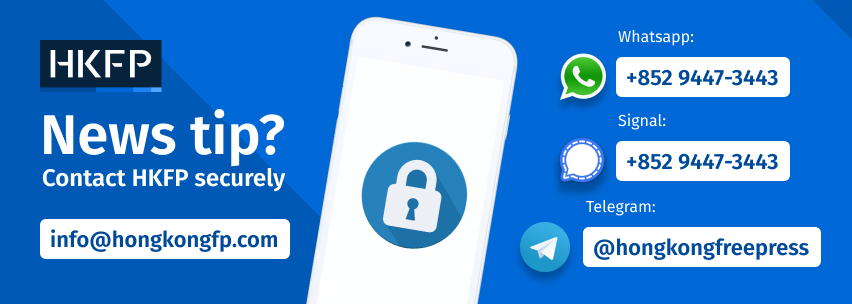People who seek to endanger national security commonly engage in such acts under the pretext of “peaceful advocacy” and “artistic creations,” Hong Kong’s security chief has claimed in a response to a Danish sculptor who has demanded the return of a 1989 Tiananmen crackdown monument seized under the national security law.
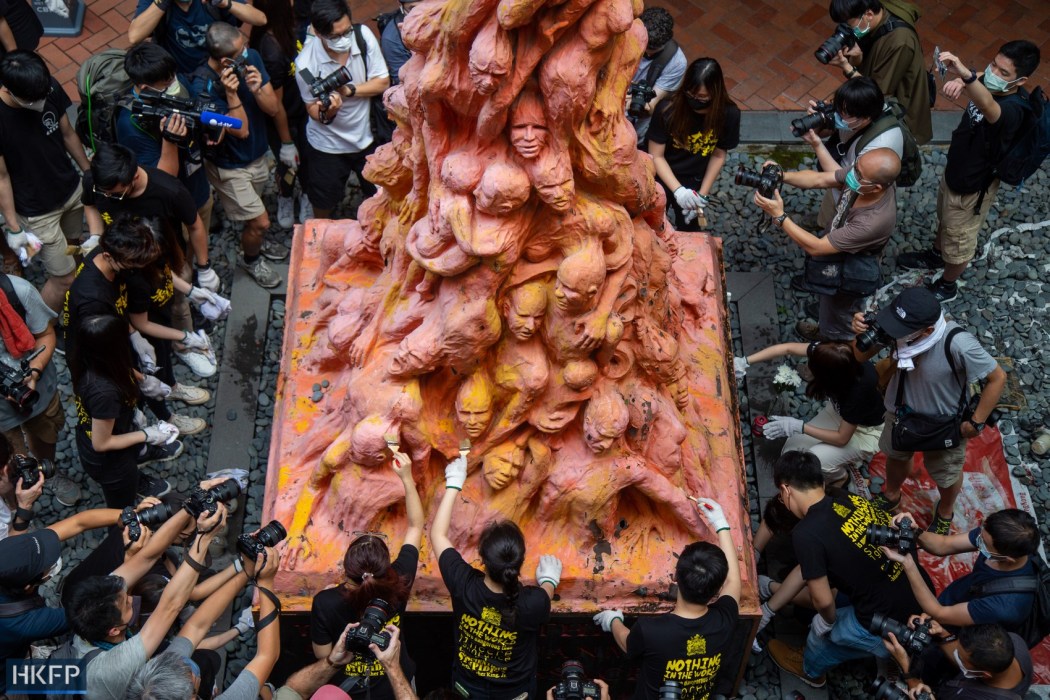
The seizure of any property or exhibit for criminal investigation or criminal proceedings linked to national security offences was conducted in accordance with legal and judicial authorisation, Secretary for Security Chris Tang said in a letter on Monday to artist Jens Galschiøt, who created the Pillar of Shame statue.
The eight-metre towering artwork had stood on the University of Hong Kong (HKU) campus for 24 years before it was quietly removed by the school citing safety concerns in December 2021. The statue was reportedly stored at the HKU Kadoorie Centre in Yuen Long.
It was seized by the city’s national security police in May as evidence for an incitement to subversion case involving the organiser of Hong Kong’s annual Tiananmen Crackdown vigil and its three leading members Lee Cheuk-yan, Albert Ho and Chow Hang-tung.
The Tiananmen crackdown occurred on June 4, 1989 ending months of student-led demonstrations in China. It is estimated that hundreds, perhaps thousands, died when the People’s Liberation Army cracked down on protesters in Beijing.
According to a letter seen by HKFP, the security minister told Galschiøt that it was the constitutional duty of the Hong Kong government to take prompt action to prevent, suppress and impose punishment against activities endangering national security.

“No country will watch with folded arms acts and activities that endanger national security,” Tang said in the three-page letter obtained from Galschiøt’s team.
The official went on to say that, although human rights – including freedom of expression – were respected and protected under the legislation safeguarding national security, those rights were not absolute. Restrictions may be applied when necessary, such as for the legitimate aims of protecting national security or public order.
“It is a common modus operandi of those seeking to endanger national security to engage in such acts and activities under the pretexts of ‘peaceful advocacy,’ ‘artistic creations’ and so forth,” the security minister alleged, without referring to a specific case or examples.
Tang said the local enforcement authorities would conduct diligent investigations to ascertain whether the “true nature and substance” of those acts and activities was to put national security at risk.
“[T] he mere use of labels is of no avail,” he said, adding that any property seized would be handled and disposed in accordance with the law.
In response, the Danish artist said in a newsletter, dated Monday, that the Hong Kong government was unable to give him a “clear answer” regarding his request for the sculpture to be returned and whether he was liable for arrest under the security law.
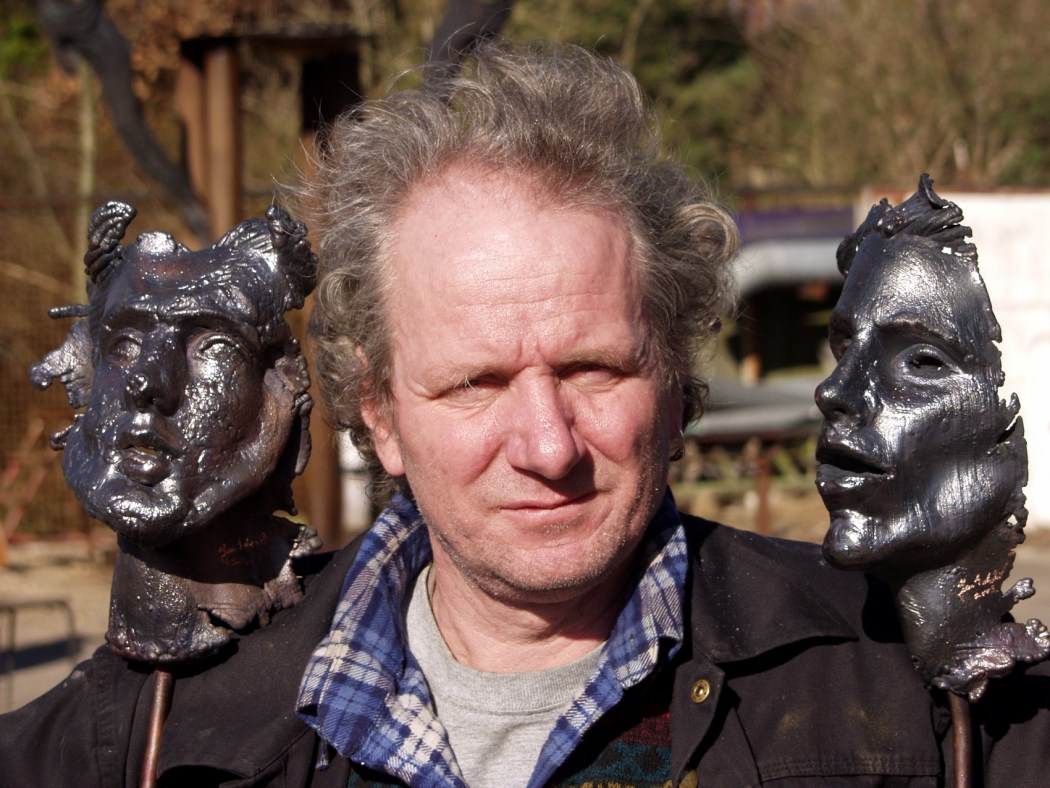
Tang said in the letter that the police would not respond to any enquiry relating to individual cases, adding the artist could “rest assured” that when the Force made an arrest, the arrestee would be informed about the offence for which they were being arrested.
Galschiøt said the Tang’s idea that artistic creations were often used as a pretext for people to engage in acts jeopardising national security amounted to “criminalising Hong Kong arts.”
“In reality, this means that all advocates of peace and artists become suspects of criminal deeds,” he said.
He added the city was one of Asia’s freest art markets, but Tang’s comment could spark fears among artistic creators.
“As an artist, and I am sure I speak for the majority of artists, this is an extremely scary logic which can crush all types of artistic [or] creative creations,” he wrote.
In June 2020, Beijing inserted national security legislation directly into Hong Kong’s mini-constitution – bypassing the local legislature – following a year of pro-democracy protests and unrest. It criminalised subversion, secession, collusion with foreign forces and terrorist acts, which were broadly defined to include disruption to transport and other infrastructure. The move gave police sweeping new powers, alarming democrats, civil society groups and trade partners, as such laws have been used broadly to silence and punish dissidents in China. However, the authorities say it has restored stability and peace to the city.
Support HKFP | Policies & Ethics | Error/typo? | Contact Us | Newsletter | Transparency & Annual Report | Apps













